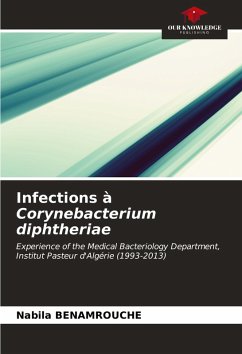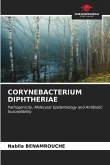One hundred and fifty strains of Corynebacterium diphtheriae collected during 1993-2013 from patients with diphtheria or ozene, including epidemic and post-epidemic periods, were studied. MLST analysis of 76 isolates identified a particular genotype(ST-116), associated with the epidemic period, appearing characteristic of Algeria. The post-epidemic period was characterized by a greater diversity of circulating genotypes. There was no correlation between ST and geographical area or toxinotype. In contrast to the mitis and gravis biotypes, the belfanti biotype strains were closely related, phylogenetically distinct and isolated exclusively from patients suffering from ozene. MIC determinations for penicillin, cefotaxime, erythromycin, tetracycline, chloramphenicol and co-trimoxazole using the E-test method showed that all strains were susceptible to penicillin and erythromycin. The majority of isolates, however, were resistant to cefotaxime, tetracycline and chloramphenicol. Ongoing monitoring and evaluation of the temporo-spatial evolution of these strains are essential.
Bitte wählen Sie Ihr Anliegen aus.
Rechnungen
Retourenschein anfordern
Bestellstatus
Storno








